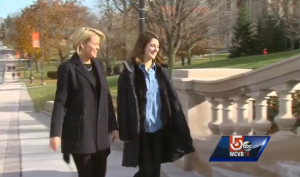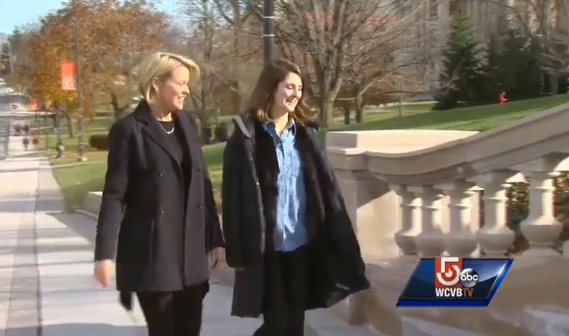
Often high school students spend their whole lives awaiting the day that they get to leave home and head off to the place they have been working so hard to get to: college. They dream of all the new people, the parties, and the freedom that comes along with growing up. However, for some college students, the picture-perfect dream they have in their head is not so perfect. In fact, before graduating, one in four college females will be victims of sexual assault or rape.
Unfortunately that was the case for Jackie Reilly, a current sophomore at Syracuse University and Walpole High School 2012 graduate. On her first weekend back at school for her sophomore year, Reilly and her sorority sisters went out for the night and when she returned back to her house the next morning, she had to face an entirely new, harsh reality: she was raped.
Initially, like the majority of sexual assault victims, Reilly stayed silent and only spoke of the assault to close family and friends. When she confided in her sorority sister Caroline Heres, the two realized that they went through very similar situations. They decided that they did not want to be silent. Reilly and Heres created a campaign that they call the Girl Code Movement.
Soon, they put together pages on various social media websites to promote their ideas about preventing sexual assaults on college campuses. Their mission statement for the campaign is “to unite college women across the country to become active operatives to stop a rape from happening.”
Reilly said, “At that point it was just an idea to promote how big of an issue [rape] was. At that point, sharing our stories was not really a part of it.”
Before the campaign launch, Reilly and her family told a few more close friends. One of these family friends was newscaster Heather Unruh. When Unruh heard Jackie’s story she decided to help Reilly break the silence by doing a news piece about sexual assaults on college campuses. “She asked Caroline and I if we would like to be in it. At first, we had no intention of going public with our stories. It is extremely personal and the thought of sharing something that personal is scary; however, we felt that if we did not take this opportunity, we were contributing to the silence: the very thing that makes us so angry about this issue,” Reilly said. “Going public with our stories was a way of taking back what happened to us from the people who did what they did.”
On December 12, 2013, Channel 5 News aired an episode of Chronicle called “Breaking the Silence: Campus Rape Epidemic”, featuring Jackie Reilly. In the segment, newscaster Heather Unruh asked Reilly questions regarding what happened to her and why she decided to speak up about it. Unruh also interviewed other college students who reported their sexual assaults and who felt as if they were being blamed for their assault.
With encouragement from family and friends, the girls initially started the movement at Syracuse, hoping to get their voices heard across campus. “At Syracuse, we are putting together a presentation for the Panhellenic community to bring all of the sororities together. Girl Code stemmed from the fact that I was left at a party. What happened to me was 100% preventable if someone had just taken me home.”
After Reilly and Heres founded the Girl Code movement, a third Syracuse student named Julie Gelb approached them and shared her interest. Like both co-founders, Gelb was a victim of sexual assault. Reilly and Heres welcomed her to the team and Gelb now runs the publicity aspect of their campaign.
Although their campaign started at Syracuse, the three intend to spread their message to other colleges and universities as well. “Once we have started at Syracuse, we plan on putting together a start-up package and giving it to other colleges. We want to spread Girl Code to other college campuses because this is not just an issue at Syracuse. This is an issue at every college campus.”
Reilly also feels that it is important for high school students to be aware of the issue before leaving for college, and is currently talking with the Guidance department at Walpole about the possibility of speaking at the high school in order to benefit the current high school students.
“Having Jackie back would show how real this problem is and that it could happen to anyone,” said Student Council Advisor Kerry McMenimen. “Bad things can happen to good people.”
Although Reilly did end up publicly sharing her story, it was not an easy process. However, the positive reactions from people in her life eased this process. Reilly said, “I have heard from over 100 people – people from Syracuse, people from Walpole that I used to go to high school with, family, friends, and even complete strangers. I was expecting Girl Code to be an awareness campaign. I did not expect so many people to speak up about their experience, but that’s awesome. I am really amazed and happy that it is doing that.”
Reilly’s reaction is sparking a movement around the Syracuse campus to heighten awareness of sexual assaults and bring this issue to the forefront of discussions. Over the next few months, Reilly hopes to begin giving presentations at other high schools and colleges. Reilly said, “Our presentation will involve talking about our experiences, passing out our promotional material, and spreading awareness.” With the Girl Code movement, Reilly as well as Heres hope to make progress towards ending the rape epidemic in schools across the country.









